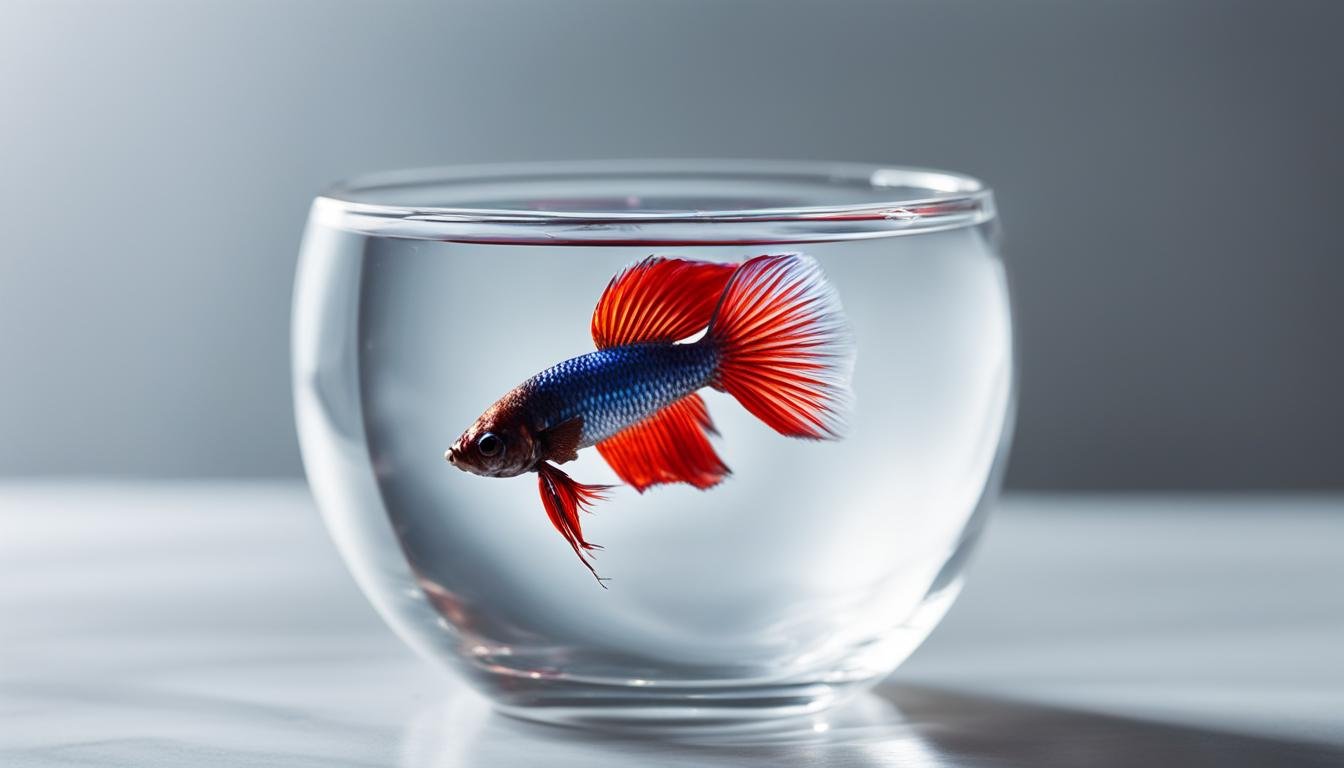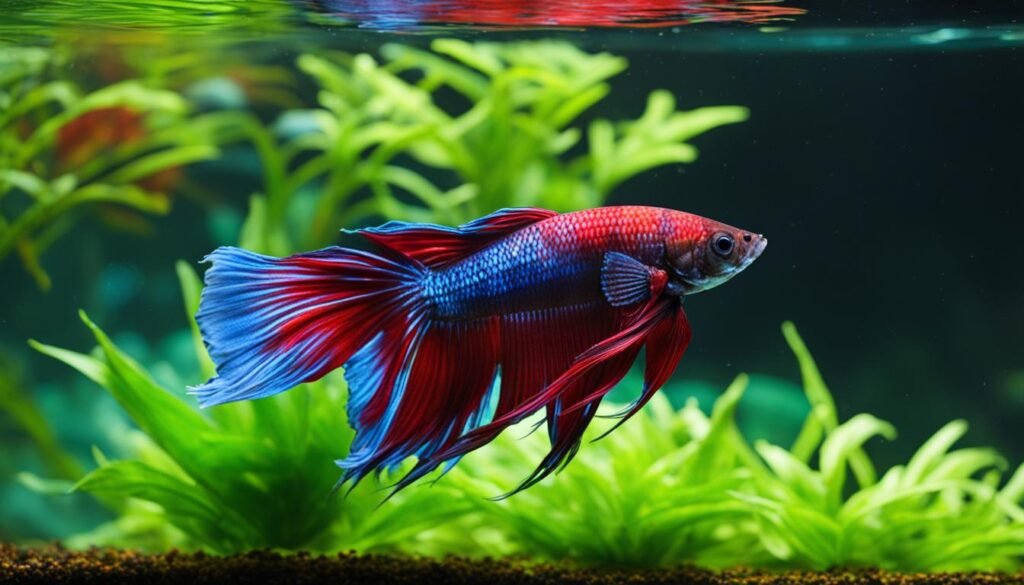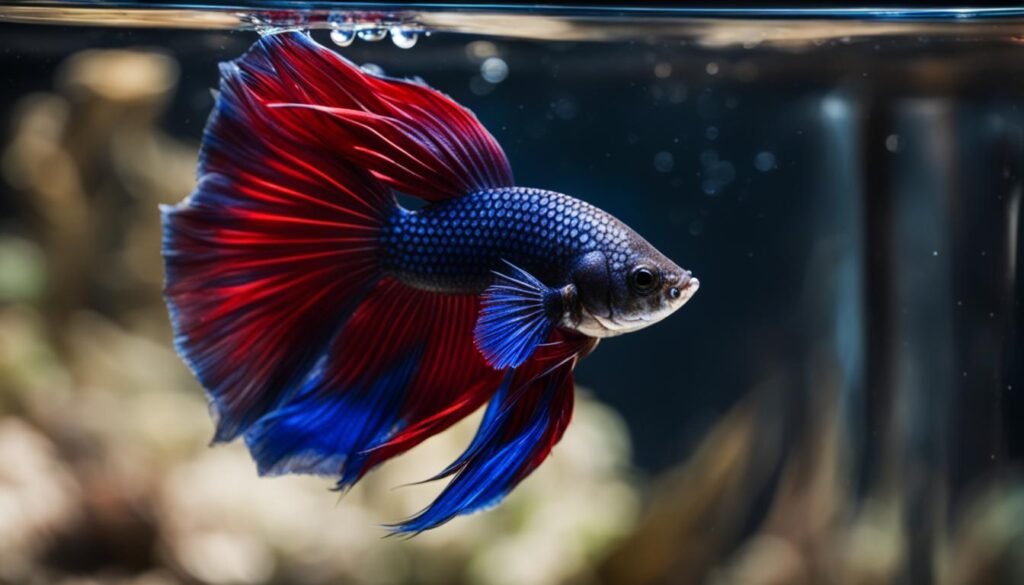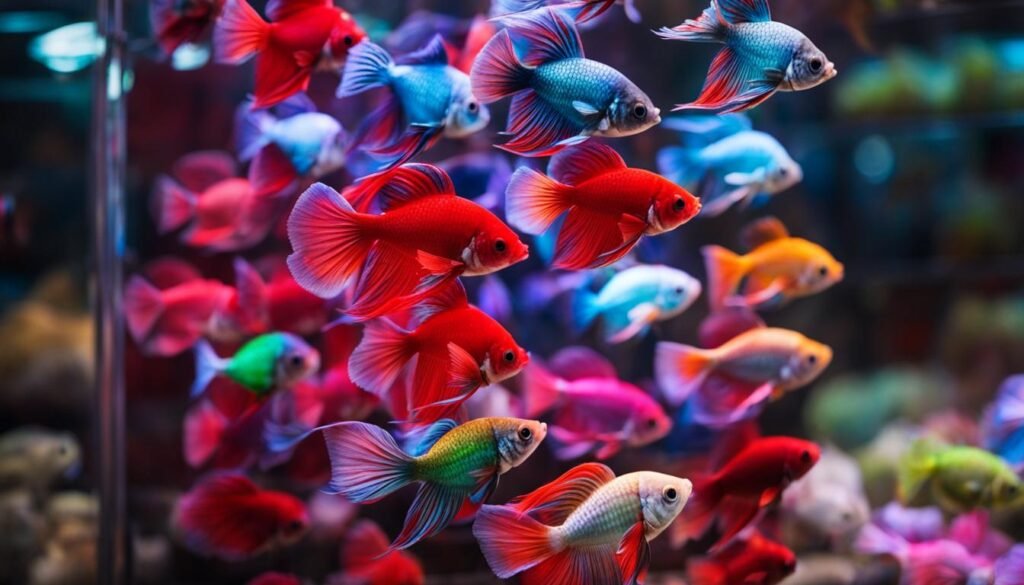Your cart is currently empty!

Why Are Betta Fish Kept In Cups? Your Guide Explained.
Welcome to our comprehensive guide on why betta fish are often kept in cups. In this article, we will explore the reasons behind this common practice in pet stores, as well as the potential negative effects on the fish’s well-being. We will also discuss alternative housing options and what you can do if you encounter betta fish sold in cups. So, let’s dive in and learn more about betta fish cup care and the environment they are typically found in.
Key Takeaways:
- Betta fish are kept in cups for cost-effective and convenient reasons for pet stores.
- Keeping betta fish in cups can lead to inadequate water quality, limited swimming space, and lack of environmental enrichment.
- Selling betta fish in cups can have negative effects on the fish’s health and perpetuate misconceptions about their care.
- There are alternatives to housing betta fish in cups, such as larger tanks or connected filter systems.
- If you encounter betta fish sold in cups, address the issue with the store manager and educate them about better housing options.
The Negative Effects of Selling Betta Fish In Cups
When betta fish are sold in cups, it may seem like a convenient and cost-effective way to display them in pet stores. However, this practice can have detrimental effects on the health and well-being of these beautiful fish.
The betta fish cup myth perpetuates the misconception that these fish can thrive in small containers. In reality, the small cup size restricts their swimming space, leading to physical deformities and other health issues. Betta fish require ample room to swim and explore in order to maintain optimal health.
Furthermore, the limited water volume in cups leads to poor water quality, which can have serious consequences for betta fish. Inadequate filtration and frequent water changes are essential to maintain the proper water parameters necessary for the well-being of these fish. Without proper filtration and water maintenance, betta fish are more susceptible to diseases and stress.
Key Points:
- Betta fish kept in cups experience restricted swimming space and physical deformities.
- Poor water quality in cups can lead to diseases and stress in betta fish.
- The betta fish cup myth perpetuates the misconception that small containers are suitable for these fish.
The Controversy Surrounding Betta Fish Cups
The controversy surrounding the sale of betta fish in cups stems from the ethical concerns associated with this practice. Many argue that confining these vibrant and intelligent fish to such small containers is cruel and inhumane.
Additionally, the availability of betta fish in cups may lead to impulse purchases without proper consideration of the care requirements for these animals. This can result in uninformed owners who are ill-prepared to provide the necessary care and attention that betta fish need to thrive.
By raising awareness about the negative effects of selling betta fish in cups, we can encourage pet stores to adopt more responsible practices that prioritize the well-being of these captivating creatures.
Key Points:
- The sale of betta fish in cups raises ethical concerns and is seen as inhumane by some.
- Impulse purchases of betta fish in cups can result in ill-prepared owners.
- Advocacy for responsible practices can lead to improved standards in the welfare of betta fish.
The Alternatives To Selling Betta Fish In Cups

Selling betta fish in cups may be a common practice, but there are alternative housing options that provide a better living environment for these beautiful fish. While some pet stores house betta fish in larger tanks or community tanks, others opt for small 1-gallon tanks connected to a filter system to maintain water quality. These temporary measures offer more space and enrichment opportunities for the fish.
Advantages of Larger Tanks
- Betta fish thrive in larger tanks as it allows them to swim freely, reducing the risk of physical deformities caused by confined spaces.
- Larger tanks provide more room for decorations, plants, and hiding spots, which betta fish greatly benefit from as they naturally explore their surroundings.
- Improved water quality can be achieved in larger tanks with the use of filtration systems, leading to healthier and happier betta fish.
Considerations for Small Tanks with Filters
- A minimum tank size of 1 gallon connected to a filter system can be used as a temporary solution for betta fish, but it is important to note that this is still not an ideal long-term setup.
- Regular water changes and maintenance are still necessary to ensure the well-being of the fish, even with a filtration system in place.
- Environmental enrichment, such as adding live plants or betta-safe decorations, should be provided to stimulate the natural behaviors of the fish.
It is important to remember that betta fish ultimately require a minimum of 5 gallons of water to thrive. While larger tanks may require more effort and investment, they offer a significantly better environment for betta fish to live long and healthy lives.
By providing betta fish with suitable and spacious housing, we can ensure their happiness and longevity as pets. Let’s advocate for better care and educate others about the proper housing requirements for these remarkable creatures.
What Should You Do If You See Betta Fish Sold In Cups?
If you come across betta fish being sold in cups, it’s crucial to take action and ensure their well-being. Here are some steps you can follow:
- Educate the Store Manager: Approach the store manager and politely explain the negative effects of keeping betta fish in small containers. Share your knowledge about the importance of providing them with adequate space, clean water, and environmental enrichment.
- Suggest Alternative Housing: Offer suggestions for alternative housing options, such as larger tanks or connected filter systems. Highlight the benefits of these alternatives in promoting the fish’s health and happiness.
- Report Poor Conditions: If you observe poor conditions or animal abuse in the store, it’s crucial to report the issue to the relevant authorities. Provide detailed information and any evidence you may have to support your claim.
Remember to stay calm and approach the situation with the goal of improving the betta fish’s well-being. By taking proactive steps and advocating for proper care, we can help ensure a better life for these beautiful creatures.
Protecting Betta Fish
At our company, we are committed to the well-being of all animals, including betta fish. We believe it’s essential to raise awareness about their care requirements and advocate for responsible pet ownership. By working together, we can make a positive impact and create a better future for betta fish.
Should You Buy A Betta Fish That Is In A Cup?

If you come across a betta fish that is being sold in a cup, you may be wondering whether it is a good idea to purchase it. While it is a personal decision, there are a few things to consider before making a choice.
If the fish appears healthy and active, it may be suitable for purchase. Look for bright colors, clear eyes, and fins that are not torn or damaged. A lively and energetic fish is usually a good sign of overall health.
However, it is crucial to provide the fish with an appropriate tank size once you bring it home. A minimum tank size of 5 gallons is recommended for betta fish to thrive. A larger tank provides more swimming space and allows for the installation of a filtration system to maintain water quality.
If you feel confident in nursing a sick betta fish back to health, you can consider rescuing it. However, keep in mind that treating a sick fish can require additional time, effort, and resources. It is essential to have proper knowledge on transferring the fish from the cup to a new tank to ensure its well-being.
Ultimately, the decision to buy a betta fish that is in a cup is up to you. Consider the fish’s condition, your ability to provide a suitable tank and care, and your willingness to take on the responsibility of nursing a sick fish if needed. Remember, betta fish deserve a proper living environment to thrive and be happy.
The Importance of Proper Care for Betta Fish Cups

Proper care for betta fish cups is paramount to the health and well-being of these fascinating creatures. While it may be convenient for pet stores to sell betta fish in cups, it is crucial to understand the negative effects this practice can have on the fish. Limited swimming space, inadequate water quality, and lack of environmental enrichment are just some of the issues betta fish face when confined to small containers.
To ensure the optimal health of betta fish, it is essential to provide them with suitable tank sizes. While cups may seem practical, they offer minimal space for the fish to swim and explore. An appropriate tank size of at least 5 gallons allows betta fish to thrive and exhibit their natural behaviors. This larger space also ensures better water quality, reducing the risk of health issues and physical deformities.
The Role of Environmental Enrichment
- Adding live or artificial plants to the tank
- Providing hiding spots with decorations or caves
- Adding floating objects, such as betta fish logs
By incorporating these elements into the tank, betta fish can experience a more stimulating and enriching environment. It’s important to remember that betta fish are intelligent creatures that require mental stimulation and a sense of security in their surroundings.
In conclusion, proper care for betta fish cups is of utmost importance. By providing them with larger tanks, maintaining water quality, and offering environmental enrichment, we can ensure the well-being and longevity of these captivating creatures. Let us take the necessary steps to educate ourselves and others about the care requirements for betta fish, and together, we can create a happier and healthier environment for them.
FAQ’s
Here are some frequently asked questions about betta fish kept in cups:
1. How long can betta fish survive in a cup?
Betta fish in cups are meant to be temporary and should not be kept in them for extended periods. The small cup size restricts their movement and can lead to poor water quality, resulting in health issues for the fish.
2. Can you keep betta fish in cups?
No, it is not recommended to keep betta fish in cups. Betta fish require a minimum tank size of 5 gallons to thrive. This larger space allows them to swim freely and provides better water conditions to support their overall health and well-being.
3. How old are the betta fish at pet stores?
The age of betta fish at pet stores can vary, but they are typically over a year old. It’s important to remember that betta fish have a lifespan of around 2-3 years, so choosing a healthy fish with proper care is essential for maximizing their potential lifespan.
Remember, providing betta fish with an appropriate tank size, maintaining good water quality, and creating an enriched environment are key factors in ensuring their happiness and longevity.
FAQ
How long can betta fish survive in a cup?
Betta fish in cups are meant to be temporary and should not be kept in them for extended periods.
Can you keep betta fish in cups?
No, betta fish require a minimum tank size of 5 gallons to thrive.
How old are the betta fish at pet stores?
The age of betta fish at pet stores can vary, but they are typically over a year old.
Leave a Reply